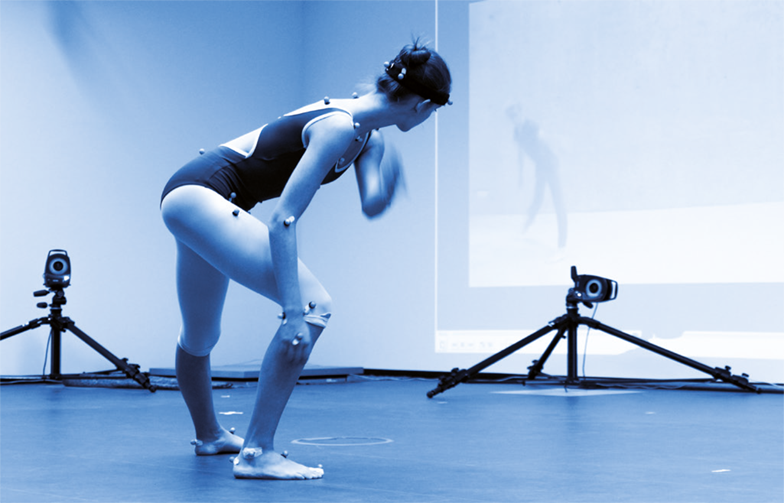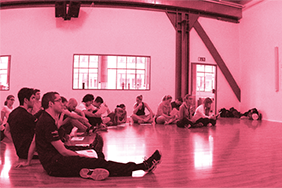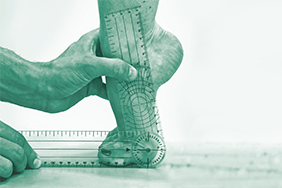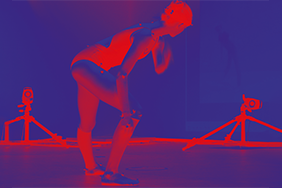CAS in Dance Science: Motor Learning & Training
Institute of Sport Science
Dance Science addresses training, lifestyle and performance of professional dancers as well as the effects of dance activities on different populations. With origins in sport science, dance science establishes a strong link between theory and practice.
In the CAS in Dance Science: Motor Learning & Training candidates will attain proficiency in the dance-related aspects of motor control theory, biomechanics and exercise science. The programme will thus enhance candidates' competency in developing and structuring training programmes that allow them to optimize teaching and learning processes in different dance contexts.
The applied CAS programme qualifies the absolvents to continue their study in the MAS in Dance Science programme of the University of Bern.

| Degree | Certificate of Advanced Studies in Dance Science: Motor Learning & Training University of Bern (CAS DSMLT Unibe) |
|---|---|
| Start | 2026/03/06 |
| Length | 06.03.2026 till 13.02.2027 |
| Scope | 16 ECTS |
| Flexible entry possible | No |
| Single module visitable | No |
| Place | Bern |
| Language | English |
| Admission | Candidates must have a degree from a University, ‚Fachhochschule‘, vocational education or equivalent as well as having proof of appropriate experience in the field of dance or another movement related field. This requirement may be waived if the candidate displays exceptional experience in the dance field. |
| Registration until | 2025/12/20 |
| Cost | CHF 4'500 |
| Organising institutions | Institute of Sport Science |
About the programme
The CAS in Dance Science: Motor Learning & Training of the University of Bern comprises 16 ECTS points and is part of the Master of Advanced Studies (MAS) in Dance Science. The CAS programme can also be completed separately.
The programme comprises 22 course days (147 contact hours) and 16 ECTS-points (ca. 480 working hours in total).
Teaching language is English.
Target audience
The continuing education programme in Dance Science addresses the following target audience from the field of movement, sports, and dance:
- Dance professionals (dancers, teachers, choreographers)
- Artistic directors of schools, dance companies and theatres
- Human Movement Scientists/Sport Scientists
- Physical education teachers
- Physiotherapists, Mensendiek-therapists, Osteopaths, Alexander-, Feldenkrais-, Spiraldynamik-, Pilates- or Gyrotonic instructors
- Experts in the area of medicine, psychology, pedagogy and education, nutrition, biology and biomechanics
Field of application
Graduates of the MAS/CAS in Dance Science are able to apply their knowledge in several ways:
- They are able to improve the training and health of students, professional and amateur dancers through evidenced-based programmes that are both age and population specific.
- They are able to collaborate in scientific research in the field of dance or sport science.
- They are able to teach Dance Science principles in vocational dance programmes (e.g. dance or dance pedagogy).
- They are able to advise directors of dance companies and schools/institutions on well-balanced and healthy training principles, as well as pedagogically responsible training for children, young adults and the elderly.
- They are able to advise the leaders of senior care facilities on the implementation of dance training for the elderly that can improve their quality of life.
- They are able to continue working professional as better-informed dancers, dance teachers or therapists.
16 ECTS points will be acquired within 12 months (February 2024- February 2025). The CAS programme in Dance Science: Motor Learning & Training is compound of 150 contact hours and 330 hours of self-study (contact hours on weekends). The programme starts every other year in February of even years (2024...) and takes place in Berne, Switzerland.
Dates 2026/27
Weekend 1: 6 - 8 March 2026
Weekend 2: 10 - 12 April 2026
Weekend 3: 16 / 17 May 2026
Weekend 4: 20 / 21 June 2026
Weekend 5: 18 / 19 July 2026
Weekend 6: 29 / 30 August 2026
Weekend 7: 10 / 11 October 2026
Weekend 8: 5 / 6 December 2026
Weekend 9: 16 / 17 January 2027
Weekend 10: 13 / 14 February 2027
Modules
Module 1: Motor Control and Learning
2 x 3 days (4 ECTS points)
Fundamentals:
- Basics of coordination: motor control
- Adaptation to coordination: motor learning and motor development (across lifespan), pathology of motor control
Application:
- Experiments and exercises on motor control
- Exercises and examples on motor learning for professional and amateur dancers
- Inputs for teaching dance movements to children, adolescents, young and older adults, and people with disabilities
Module 2: Science of Training
3 x 2 days (4 ECTS points)
Fundamentals:
- Basics and application field of the science of (dance) training
- General aspects of training in sports and dance
- Basics of motor abilities related to professional and amateur dancers
Training in professional dance:
- Performance assessment and didactic principles of training across populations (children, adolescents, adults)
- Theory and application of conditioning and coordination testing
- Various training methodologies
- Relaxation and sleep
Training with amateur dancers and dancers with disabilities:
- Training methodologies with amateur dancers through lifespan
- Execution of several conditioning and coordination tests
- Characteristics of training with children and the elderly
- Characteristics of training people with diseases and disabilities
- Characteristics of dance as a performance enhancement in athletes
Module 3: Biomechanics
3 x 2 days (4 ECTS points)
Fundamentals I:
- Basics of biomechanics I
- Loading capacity of biological structures
- Methods of movement analysis I
Fundamentals II/Application I:
- Methods of movement analysis II
- Technical aspects of dance floors
- Introduction to the sensor-motor laboratory
- Experiments with rotations and jumps
- Video analysis in practice I
Application II:
- Analysing and correcting movement
- Video analysis in practice II
- Introduction to force plate, accelerometers, electromyography
- Statistical analysis of recorded data
Module 4: Embedded Research Skills
2 x 1 day (1 ECTS point)
Research Method I:
- Understanding statistics: The principle of statistical testing, basics of statistics
- Handling of numerical data sets
- Structure of a scientific paper, searching and citing literature at the example of an analysis of dance training
Research Method II:
- Evaluation of data in practice
- Understanding statistics: repetition, exercises, question and discussion round
- Analysis of dance training: practical assignments
Assessment
The assessment of the Certificate of Advanced Studies in Dance Science: Motor Learning & Training contains the following elements:
- Presence at block appointments (minimal 90% in total)
- Written exam with multiple choice and open-end questions
- Written paper (analysis of a dance training)
The programme management decides based on above elements on the passing of the assessment and the issuing of the Certificate.
Organising institution and faculty
Organising Institution
Institute of Sport Science
Members of the programme management MAS/CAS Dance Science
- Dr. Derrick D. Brown, Victorian College of the Arts, Melbourne, Australia
- Dr. med. Anja Hauschild, BK Klinikum Hamburg, Deutschland
- Prof. Dr. Ernst-Joachim Hossner, Institut für Sportwissenschaft, Universität Bern (Vorsitz)
- Dr. med. Ines Debove, Zentrum für Parkinson und Bewegungsstörungen, Inselspital Bern
- Prof. Dr. Fred Mast, Institut für Psychologie, Universität Bern
- Dr. Andrea Schärli, Institut für Sportwissenschaft, Universität Bern (Studienleitung)
- Prof. Dr. Mirko Schmidt, Institut für Sportwissenschaft, Universität Bern
Lecturers
- Dr. Sarah Meissner
- Dr. Catherine Haber
- Prof. Dr. Daniel Erlacher
- Dr. Luke Hopper
- Prof. Dr. Ernst-Joachim Hossner
- Nico Kolokythas
- Dr. Ralf Kredel
- Dr. Andrea Schärli
- Dr. Rolf van de Langenberg
- Prof. Dr. Matthew Wyon
Admission
Candidates must have a degree from a University, ‚Fachhochschule‘, vocational education or equivalent as well as having proof of appropriate experience in the field of dance or another movement related field. This requirement may be waived if the candidate displays exceptional experience in the dance field
Application and tuition fees
The study fee for the CAS in Dance Science: Motor Learning & Training is CHF 4'500.
The fee has to be paid before the start of the course with the bill delivered, i.e., until by the latest 30 January 2026. In exceptions, payment with maximal 3 instalments is possible.
Application for the CAS in Dance Science: Motor Learning & Training until 20 December 2025.
Follow us at Facebook

Follow us at Instagram

Contact

- Name / Titel
- PD Dr. Andrea Schärli
- Funktion
- Lecturer
- andrea.schaerli@unibe.ch
- Phone
- +41 31 684 56 64
- Phone2
- +41 31 684 51 70

- Name / Titel
- Carla Winkelmann
- Funktion
- Secretariat CAS/MAS Dance Science
- dancescience.ispw@unibe.ch
- Phone
- +41 31 684 56 59
- Phone2
- +41 31 684 51 70
Associate Courses
CAS in Dance Science: Psychology & Education
| Degree | CAS |
|---|---|
| Start | 2027/02/26 |
| Language | Englisch |
| Cost | CHF 4'500 |
This CAS focuses on the psychological and pedagogical aspects in dance.
CAS in Dance Science: Health & Performance
| Degree | CAS |
|---|---|
| Start | 2027/07/12 |
| Language | Englisch |
| Cost | CHF 4'500 |
In this CAS anatomical, physiological and psychological aspects of the dancing body and dance performance will be critically assessed.
MAS in Dance Science
| Degree | MAS |
|---|---|
| Start | 2027/07/12 |
| Language | Englisch |
| Cost | CHF 15'000 |
The University of Bern (Switzerland) offers the first Master of Advanced Studies (MAS) programme in Dance Science in Continental Europe. With its unique focus on Dance Science applied to different population groups (e.g., children, older adults, disabilities, as well as amateur and professional dancers), the MAS in Dance Science prepares graduates for a wide range of careers in the dance world.



